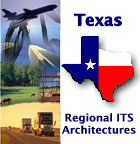| 8.0 | MAINTENANCE AND CONSTRUCTION MANAGEMENT |
| 8.1 | MAINTENANCE AND CONSTRUCTION OPERATIONS |
| 8.1.1 | Maintenance and Construction Operations shall provide a Maintenance Vehicle Fleet Management (MVFM) function to schedule and dispatch, monitor and track location, and monitor operational condition and maintenance requirements of public and contracted fleets of maintenance, construction, and specialized service vehicles. This function includes interactions among Traffic Managers, Supervisors, Dispatchers, Field Crews, Construction Crews, Vehicle Maintenance Crews, Equipment Maintenance Crews, Weather Services Organizations, and Information Service Providers. |
| 8.1.1.2 | MVFM shall be capable of supporting route scheduling and dispatching of public and contracted fleets of maintenance, construction, and specialized service vehicles. |
| 8.1.1.3 | MVFM shall be capable of supporting interactive data communications between dispatchers and operators of public and contracted maintenance, construction, and specialized service vehicles. |
| 8.1.1.6 | MVFM shall be capable of providing dispatchers and operators of maintenance, construction, and specialized service vehicles with information regarding potential and actual roadway problems. |
| 8.1.1.6.1 | MVFM shall provide information to dispatchers and vehicle operators, including but not limited to: |
| 8.1.1.6.1(a) | Congestion |
| 8.1.1.6.1(b) | Incidents |
| 8.1.1.6.1(c) | Roadway restrictions |
| 8.1.2 | Maintenance and Construction Operations shall provide a Roadway Management (RWM) function to monitor traffic, road surface, and environmental conditions and forecast traffic and road surface conditions to support management of routine and hazardous road condition remediation and to communicate changes in conditions. This function includes interactions among Traffic Managers, Supervisors, Dispatchers, Field Crews, Construction Crews, Asset Managers, Planning Agencies, and Weather Services Organizations. |
| 8.1.2.1 | RWM shall support a number of different services, including but not limited to: |
| 8.1.2.1(a) | Winter maintenance (plowing, treating, anti-icing, de-icing, etc.) |
| 8.1.2.1(b) | Hazard removal (removing trash, animals, etc.) |
| 8.1.2.1(c) | Emergency activities (incident response, planning, alternate routing, etc.) |
| 8.1.2.1(d) | Routine maintenance activities (cleaning, cutting, etc.) |
| 8.1.2.1(e) | Repair activities |
| 8.1.2.1(f) | Other weather related activities (fog dispersion, etc.) |
| 8.1.2.9 | RWM shall monitor, manage, and control remotely located, automated systems, that affect the roadway surface (e.g. de-icing/anti-icing applications). |
| 8.1.3 | Maintenance and Construction Operations shall provide a Work Zone Management and Safety (WZMS) function, which provides support for the effectiveness, safety, and efficiency of roadway operations during all work zone activities. This function includes interactions among Traffic Managers, Supervisors, Dispatchers, Field Crews, Construction Crews, Public Safety Organizations, Information Service Providers, and Travelers. |
| 8.1.3.1 | WZMS shall monitor, control, and direct activity in the vicinity of work zones. |
| 8.1.3.1.1 | WZMS shall provide information about work zones, including but not limited to: |
| 8.1.3.1.1(a) | Anticipated delays |
| 8.1.3.1.1(b) | Alternate routes |
| 8.1.3.1.1(c) | Suggested speed limit |
| 8.1.3.1.3 | WZMS shall be able to divert vehicles around work zones via automated lane changing techniques. |
| 8.1.3.1.3.2 | WZMS shall support archiving of field data. |
| 8.1.3.2 | WZMS shall support the management of data about work zones. |
| 8.1.3.2.1 | WZMS shall collect information concerning work zone activities, including but not limited to: |
| 8.1.3.2.1(a) | Location |
| 8.1.3.2.1(b) | Nature / type |
| 8.1.3.2.1(c) | Scheduled start time |
| 8.1.3.2.1(d) | Duration |
| 8.1.3.2.1(e) | Lane shifts |
| 8.1.3.2.1(f) | Staging areas |
| 8.1.3.2.1(g) | Length of work zone |
| 8.1.3.2.1(h) | Scheduled phases of work zone configuration |
| 8.1.3.2.1(i) | Alternate routes |
| 8.1.3.2.1(j) | Anticipated delays for travel route |
| 8.1.3.2.1(k) | Anticipated delays for diversion route |
| 8.1.3.2.2 | WZMS shall correlate planned activities with actual work. |
| 8.1.3.3 | WZMS shall provide systems that communicate reliable, accurate, and timely traveler information, including but not limited to: |
| 8.1.3.3(a) | Location, including lane closure information |
| 8.1.3.3(b) | Alternate route / detour |
| 8.1.3.3(c) | Work zone speed limit |
| 8.1.3.3(d) | Delay |
| 8.1.3.4 | WZMS shall support the provision of vehicle intrusion warnings. |
| | |












 Web Spinner Technology.
Web Spinner Technology.